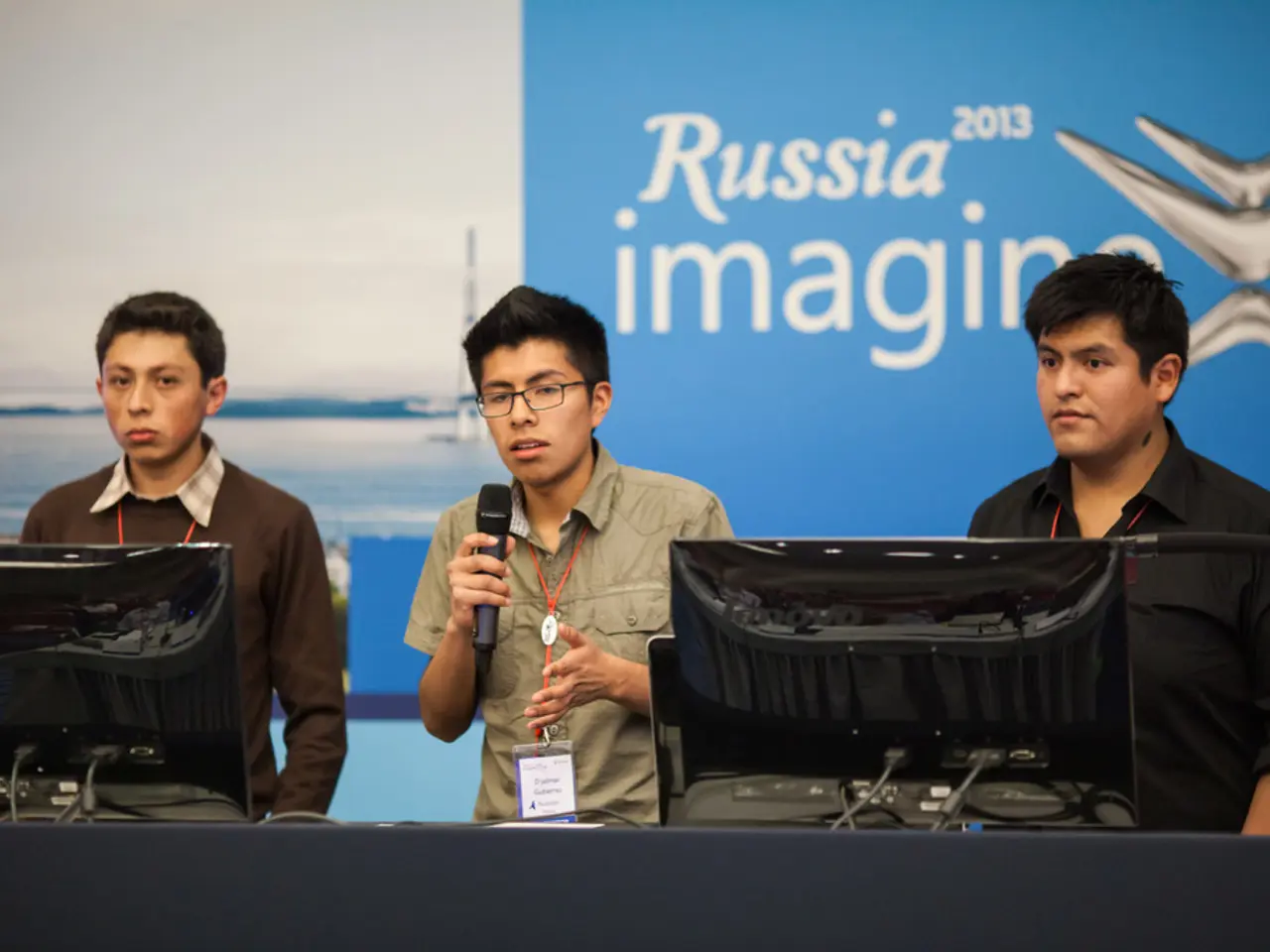Revolutionary Chinese Brain Implant Scheme Poised to Outshine Musk's Neuralink
In the rapidly evolving world of brain-computer interface (BCI) technology, Elon Musk's Neuralink and Chinese BCI projects are making significant strides, setting the stage for a competitive landscape in the global market.
Neuralink, with its ambitious goal of generating $1 billion in revenue by 2031, aims to implant BCI chips in around 20,000 people. The company has three primary devices in development: Telepathy for communication, Blindsight for vision restoration, and Deep for the treatment of movement disorders [1]. Neuralink has received FDA breakthrough device designation for Blindsight and expects approval for Telepathy by 2029 [1].
The company's N1 implant, featuring over 1,000 electrodes implanted via a robotic system, has been demonstrated in clinical trials in North America and the UK. This innovation enables patients with severe neurological issues to control computers, smartphones, and robotic arms [2][4][5]. Neuralink's expansion into the UK, through the GB-PRIME trial, has seen over 30 patients implanted to restore mobility, backed by $650 million in funding and partnerships with leading UK hospitals [2][4].
On the other side of the globe, Chinese BCI projects are making their mark. China has made significant progress with semi-invasive, fully wireless BCI systems such as the "Beinao No. 1," independently developed by Beijing researchers. This system has successfully undergone human implantations in multiple Beijing hospitals with a device channel efficacy of over 98% [3]. Chinese BCI technology enables paralyzed patients to remotely control computers and robotic limbs, and even stimulate muscles for functional recovery [3].
The National Healthcare Security Administration of China recognized BCI technology as an independent chargeable medical item in March 2025, signaling regulatory and industrial support [3].
The competition between Neuralink and Chinese BCI projects is marked by Neuralink's aggressive clinical expansion, advanced robotic implantation technology, and regulatory breakthroughs in the US and UK. Chinese projects, however, emphasize semi-invasive, wireless systems with strong integration in healthcare and industrial incentives, demonstrating technical leadership especially in flexible implant technology.
Both are progressing clinical trials for neurological disorder treatments and assistive technologies, with Neuralink focusing on high-density intracortical implants and China on high-throughput semi-invasive implantables.
As the global BCI market is projected to exceed $15 billion by 2035, driven by medical applications and human-AI integration opportunities [1][2][3][4], the race between Neuralink and Chinese BCI projects is set to shape the future of this burgeoning industry.
Meanwhile, Synchron, a US-based company, is also working on BCI technology, with backing from Amazon founder Jeff Bezos and Microsoft's Bill Gates. China's Ministry of Industry and Information Technology has expressed interest in advancing BCI technology for applications including hands-free driving, virtual reality, and medical rehabilitation.
Musk's greater ambition with Neuralink is to create new forms of cybernetic "enhancements" for everyday people, such as super-human memory or the ability to learn new skills instantly. The chips inserted by Neuralink monitor electrical signals in the brain for patterns associated with different actions and translate them into computer code, potentially allowing people with limited mobility, such as those with spinal cord injuries, to control a computer with their mind.
As the race between Neuralink and Chinese BCI projects heats up, it is clear that the future of BCI technology is bright, offering numerous opportunities for innovation and improvement in the lives of millions.
- With the objective of generating $1 billion in revenue by 2031, Neuralink, a tech company founded by Elon Musk, plans to implant BCI chips in around 20,000 people.
- Gizmodo reported that Neuralink's N1 implant, featuring over 1,000 electrodes, has been demonstrated in clinical trials in North America and the UK, enabling patients with severe neurological issues to control computers, smartphones, and robotic arms.
- In the realm of education-and-self-development and general-news, the competitive landscape in the global BCI market is being shaped by Neuralink's advancements and Chinese BCI projects, both of which are progressing clinical trials for neurological disorder treatments and assistive technologies.
- In the finance world, the global BCI market is projected to surpass $15 billion by 2035, driven by medical applications and human-AI integration opportunities.
- The sports industry could also benefit from BCI technology, as China's Ministry of Industry and Information Technology has expressed interest in advancing BCI tech for hands-free driving and virtual reality applications, which could potentially revolutionize sports training and rehabilitation processes.




